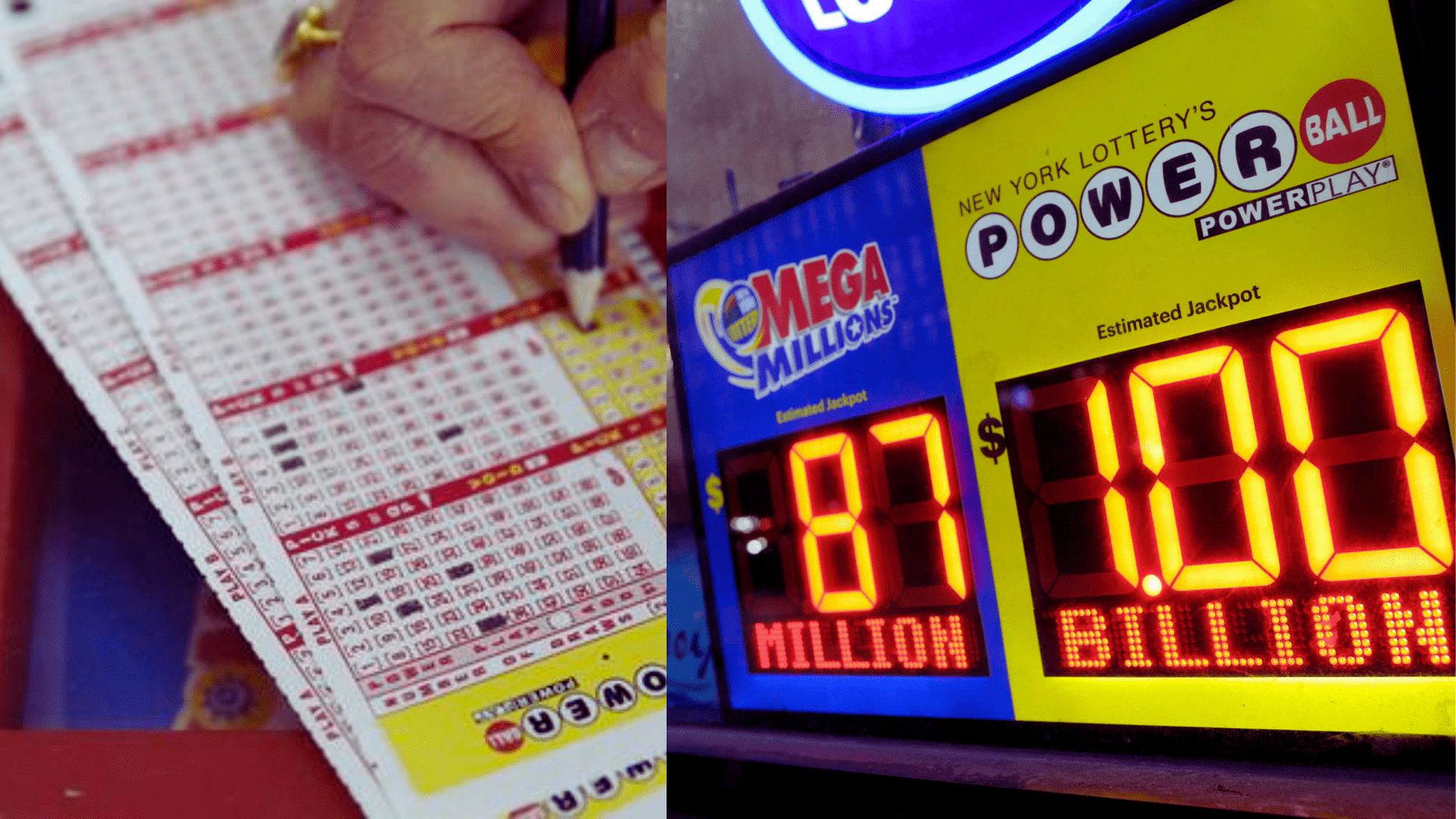The Powerball lottery is an iconic game of chance that has captured the imagination of millions across the United States and beyond. Known for its incredibly large jackpots, Powerball operates in 45 states, as well as Washington D.C., Puerto Rico, and the U.S. Virgin Islands. The allure of transforming one’s financial destiny overnight has made Powerball a household name, with participants dreaming of hitting the grand prize.
The game’s popularity stems not only from the substantial sums of money on offer but also from its simplicity. Players select five numbers from a set of 69 and one Powerball number from a set of 26, with the option to let the lottery terminal randomly pick the numbers. Draws are held twice a week, on Wednesday and Saturday nights, adding to the excitement and anticipation among players.
Powerball’s progressive jackpot means that if no one wins, the prize money rolls over to the next drawing, often resulting in staggering amounts that can reach into the billions. This feature, along with the game’s wide availability, has solidified Powerball’s status as a major player in the lottery world, continually attracting new participants eager to try their luck at winning big.
What is Powerball?
Powerball is a highly popular lottery game known for offering some of the largest jackpots in the world. Participants have the chance to win massive prizes by matching numbers drawn in bi-weekly drawings. Here’s a basic rundown of how Powerball works:
- Choosing Numbers: Players select five numbers from a set of 69 (white balls) and one number from a set of 26 (the Powerball, a red ball). Players can choose their numbers manually or opt for a quick pick, where the lottery terminal randomly selects numbers.
- The Draw: Powerball drawings take place twice a week, on Wednesday and Saturday evenings. During the draw, five white balls and one red ball (the Powerball) are randomly selected.
- Winning Conditions: Winning ranges from matching the Powerball alone, which grants a minimum prize, to matching all five white balls and the Powerball, which awards the jackpot. The prizes increase significantly as more numbers match the drawing.
- Jackpot and Prizes: The Powerball jackpot starts at $20 million and grows with each drawing that doesn’t produce a jackpot winner. There are also fixed prizes for matching fewer numbers, which can range from a few dollars to $1 million.
- Play Options: Powerball offers a multiplier feature called Power Play, which can multiply non-jackpot prizes by up to 10 times for an additional cost.
Powerball’s structure allows for the accumulation of large jackpots, making it extremely popular among lottery players seeking life-changing wins. Its widespread availability across 45 states, Washington D.C., Puerto Rico, and the U.S. Virgin Islands adds to its appeal, drawing millions of participants for each drawing.
How Much Is the Powerball Jackpot Now?
The current Powerball jackpot has reached an impressive $935 million for the drawing scheduled on Saturday, March 30, 2024. This surge in the jackpot amount is a result of continued interest and ticket sales, alongside previous drawings not producing a winner with the exact match for the winning numbers.
Factors influencing the jackpot amount include:
- Ticket Sales: Increased participation leads to higher jackpots.
- Carryover Effect: When no winners emerge, the jackpot rolls over to the next drawing, increasing the amount.
- Interest Rates: The annuity option’s value is partly determined by current interest rates, affecting the jackpot’s cash value.
The Powerball jackpot has grown significantly over recent weeks, with previous drawings on March 27 estimated at $865 million and March 20 at $450 million, showcasing a rapid climb in potential winnings. This trend underscores the lottery’s unpredictable nature and the collective hope of participants aiming for life-changing sums.
How Are Jackpots Determined?
The process of determining jackpot amounts, especially for lottery games like Powerball, is fundamentally linked to ticket sales and the game’s predefined rules. Here’s a simplified breakdown:
- Base Jackpot: Each game starts with a base jackpot. For Powerball, if there’s no winner for a drawing, the base amount for the next drawing is higher.
- Ticket Sales: A significant portion of each ticket sale is allocated to the jackpot pool. The more tickets sold, the larger the jackpot grows. This is why jackpots can soar to staggering amounts when there’s a lot of public interest.
- Previous Draws: If no participants win the jackpot by matching all the winning numbers in a draw, the jackpot rolls over to the next draw, increasing the prize.
- Interest Rates: For lotteries offering an annuity payment option, the size of the annuitized jackpot can be influenced by prevailing interest rates. Higher interest rates can lead to larger annuity payments, affecting the advertised jackpot amount.
- Game Sales and Interest: Jackpot amounts can also be influenced by the game’s popularity and public interest. Higher anticipation or larger jackpots can lead to increased ticket sales, which in turn, can lead to even larger jackpots.
- Payout Choices: Winners often choose between an annuity payout over several years or a lump sum. The advertised jackpot often refers to the annuity option, while the lump sum is typically less but paid out immediately.
By combining these factors, lotteries like Powerball determine their jackpot amounts for each draw, creating dynamic prizes that can reach into the billions, attracting more players and, subsequently, increasing the jackpot further.
Record-Holding Jackpots
Here are some of the largest Powerball jackpots ever won:
- $1.765 billion – Won on October 11, 2023, by a single ticket.
- $2.04 billion – The largest Powerball jackpot to date, won on November 8, 2022, with a single ticket from California.
- $731.1 million – January 2021: A single ticket from Maryland secured this jackpot, adding to the list of significant single-ticket jackpot wins in Powerball history.
- $768.4 million – March 2019: A single ticket from Wisconsin snagged this enormous jackpot, making it one of the biggest single-ticket wins in Powerball history.
- $758.7 million – August 2017: A ticket sold in Massachusetts won this jackpot, which is notable for being the largest won by a single ticket at the time.
- $1.586 billion – January 2016: This massive jackpot was shared by three winning tickets from California, Florida, and Tennessee, marking one of the most memorable moments in lottery history.
These jackpots highlight the massive potential winnings offered by the Powerball lottery, making it one of the most popular lottery games in the United States.
How to Play Powerball
Playing Powerball is straightforward. Follow these simple steps to get started:
- Purchase a Ticket: You can buy Powerball tickets from authorized retailers in participating states, territories, and jurisdictions. Some places also allow online purchases.
- Choose Your Numbers: Pick five numbers between 1 and 69 for the white balls and one number between 1 and 26 for the red Powerball. You can select the numbers yourself or opt for a “Quick Pick” where the numbers are chosen randomly for you.
- Decide on the Number of Draws: You can buy tickets for multiple consecutive draws in advance.
- Consider the Power Play Option: For an additional cost, the Power Play option can multiply non-jackpot prizes by 2, 3, 4, 5, or even 10 times.
- Check the Drawing Time: Powerball drawings are held twice a week, typically on Wednesday and Saturday nights. Make sure you know when the next drawing is scheduled.
- Check Your Ticket After the Draw: Compare the numbers on your ticket with the winning numbers. Prizes range from the jackpot (matching all five white balls and the Powerball) to $4 (matching the Powerball alone or one white ball plus the Powerball).
- Claim Your Prize: If you win, follow the claiming instructions provided by your state lottery, as the procedure varies by location and prize amount.
Remember, the rules and methods for purchasing tickets can vary by location, so it’s always a good idea to check the specific rules in your area.
Odds of Winning Powerball
The odds of winning the Powerball jackpot, which involves matching all five white balls in any order and the red Powerball, are about 1 in 292.2 million. These odds are designed to generate large jackpots that attract more players. While the jackpot odds are daunting, Powerball also offers smaller prizes with better odds:
- Matching all five white balls (without the Powerball) wins $1 million, with odds of 1 in 11.7 million.
- The odds of winning $50,000 by matching four white balls plus the Powerball are approximately 1 in 913,000.
- Prizes decrease as fewer numbers match, with the smallest prize of $4 for matching just the Powerball, with odds of 1 in 38.2.
These odds reflect the challenging nature of winning large lottery prizes but also highlight that there are multiple ways to win smaller amounts, which occur more frequently. Remember, while playing the lottery can be fun, it’s important to play responsibly.
What Happens When You Win Powerball?
Winning the Powerball lottery can be a life-changing event. Here are the general steps and decisions you’ll need to make after discovering you’ve won:
- Secure Your Ticket: Sign the back of your winning ticket immediately. It’s a crucial first step to claim ownership. Consider storing it in a safe place, such as a safe deposit box.
- Remain Anonymous if Possible: Depending on your state’s laws, you might have the option to remain anonymous. This can protect your privacy and security.
- Choose Between Lump Sum and Annuity: Winners have the choice between receiving their winnings as a lump sum or an annuity spread out over 29 years. Each option has its tax implications and financial considerations.
- Assemble a Team of Professionals: It’s advisable to gather a team that includes a financial advisor, a tax professional, and a lawyer. They can help navigate the complexities of a large windfall.
- Plan Your Claim: Check the rules in your state for claiming the prize. You usually have from 90 days to a year, depending on where the ticket was purchased.
- Consider Your Financial Plan: Work with your financial advisor to develop a comprehensive financial plan that considers investments, donations, and spending.
- Adjust to Your New Life: Winning a significant amount can be overwhelming. Consider counseling to adjust to your new circumstances.
These steps and decisions can help ensure that the transition to wealth is as smooth and positive as possible.
Annuity vs. Lump Sum: Payout Options for Jackpot Winners
When you win a large jackpot like Powerball or Mega Millions, you have two primary payout options: an annuity or a lump sum.
- Annuity: Opting for an annuity means you’ll receive your winnings in annual payments spread out over a period, typically 29 to 30 years. This option allows for a steady income stream and can potentially lead to less tax liability over time since the total amount is distributed across many years.
- Lump Sum: Choosing a lump sum payout means you’ll receive a one-time payment that’s a reduced percentage of the total jackpot. This option offers immediate access to a significant amount of money, but it also comes with a hefty tax bill, as the entire sum is taxable in the year it’s received.
Decision Factors
- Tax Implications: Your current financial situation and the potential for changing tax laws should be considered.
- Financial Management: Consider your ability to manage a large sum of money. A lump sum offers more control but requires discipline, while an annuity provides a guaranteed income.
- Investment Potential: With a lump sum, there’s potential to generate income through investments, possibly exceeding the value of the annuity payments.
In summary, the choice between an annuity and a lump sum depends on personal financial goals, tax considerations, and risk tolerance. Consulting with a financial advisor can help clarify which option aligns best with your long-term objectives.
Taxes on Winnings
When you win a lottery jackpot like Powerball or Mega Millions, you face significant tax implications. The IRS taxes lottery winnings as income, and the amount you owe depends on your total income for the year, including the winnings.
There are two primary payout options: the lump sum and the annuity. Each has different tax implications:
- Lump Sum: You receive all your winnings at once but at a reduced amount compared to the advertised jackpot. This option subjects your winnings to federal income tax at the highest marginal rate. Since it significantly increases your annual income for the year you win, you might find yourself in the highest tax bracket, resulting in a substantial tax bill.
- Annuity: The annuity option spreads your winnings over 30 years, providing a steady income stream. This method could keep you in a lower tax bracket compared to taking a lump sum, potentially reducing the total amount of taxes you pay over time. However, you’ll still be subject to federal income taxes on each annual payment.
State taxes may also apply, depending on where you live and purchased the ticket. Some states tax lottery winnings at different rates, while others, like Florida and Texas, do not tax lottery winnings at all.
Choosing between the lump sum and annuity options should consider the tax implications, your financial situation, and your personal preferences.
Tips for Powerball Players
For those dreaming of hitting the Powerball jackpot, here are some strategies and tips that might slightly improve your chances of winning:
- Mix Even and Odd Numbers: Ensure your selection includes both even and odd numbers rather than sticking to just one type.
- Split Between Low and High Numbers: Balance your picks between the lower and higher halves of the available number range.
- Sum Your Numbers: After choosing your numbers, add them together. Some suggest aiming for a total that falls within a certain range could increase your chances.
- Buy More Tickets: Simply put, the more tickets you purchase, the greater your chances of winning. However, this also means spending more money, which may not be a viable strategy for everyone.
- Play Consistently: Regular participation can slightly enhance your chances of winning. Sticking to the same numbers over time is a strategy some players use.
- Consider a Lottery Syndicate: Joining forces with others to buy a large number of tickets can increase your chances. If any ticket in the syndicate wins, the prize is shared among all members.
Controversies and Concerns
The lottery, while a popular form of gambling worldwide, is not without its controversies and ethical concerns. Some of the most significant issues include:
- Regressive Impact on the Poor: Lotteries are often criticized for being a regressive form of taxation, disproportionately affecting lower-income individuals who are more likely to purchase lottery tickets.
- Ethical Considerations: The ethical implications of playing the lottery can vary, with some viewing it as a harmless form of entertainment, while others raise concerns about feeding gambling addictions, whether supported by the government or other entities.
- Economic Inefficiency: Critics argue that the lottery encourages poor financial decision-making, with money flowing from the economically disadvantaged to the state, and discouraging adequate funding for essential public services from regular tax revenues.
- Advertising Ethics: The ethics of lottery advertising have been questioned, particularly regarding the appeals used by advertisers and whether they mislead or exploit vulnerable populations.
- Effect on Individualism and Society: Some philosophical perspectives argue that lotteries promote a harmful form of individualism by encouraging people to fantasize about life-changing wealth without recognizing the societal implications of widespread gambling.
The Impact of Powerball on Society
The Powerball lottery, a popular form of entertainment and dream for many, plays a significant role beyond creating millionaires. A substantial portion of the revenue generated from ticket sales benefits states and, indirectly, various public sectors and charities. Here’s how:
- Education Funding: A considerable percentage of lottery revenues, including Powerball, is earmarked for educational purposes. This funding supports public schools, college scholarship programs, and educational initiatives, aiding in the development of the educational infrastructure and making education more accessible.
- State Revenue: About 60% of the revenue from state lotteries goes directly to winners. The remaining portion is retained by the states, contributing significantly to their budgets. This money is utilized for a variety of public services, including education, park services, and elder care, thereby reducing the need to increase taxes for these expenditures.
- Social Services and Infrastructure: Lottery revenues help fund essential state services such as child welfare, environmental protection, and infrastructure projects. This allocation helps improve the quality of life within the state, supporting community development and welfare initiatives.
- Tax Revenue: Large lottery winnings are taxed as ordinary income, contributing to federal and state tax revenues. This taxation provides another stream of funding for government projects and services, impacting society positively.
- Charitable Contributions: While not directly from the lottery’s revenue, many winners choose to donate a portion of their winnings to charities, further benefiting society through philanthropic efforts.
In conclusion, Powerball and similar lotteries serve as more than just gambling; they are a vital source of funding for state budgets, education, and various public services, illustrating a significant impact on society beyond the excitement of potentially hitting the jackpot.
Conclusion
Powerball has transcended being merely a lottery game to become a significant cultural phenomenon, encapsulating the quintessential American dream of striking it rich overnight. It embodies a unique blend of hope, strategy, and chance that captivates millions, driving them to participate in the hopes of changing their lives forever. This lottery system is not just about the staggering jackpots but also reflects broader societal themes, including the culture of inequality and the human propensity to dream big despite astronomical odds. Powerball has a substantial impact on the national consciousness, offering a lens through which we view success, fortune, and the randomness of luck. It’s a testament to the enduring human spirit that continually seeks transformation through fortuitous means. Moreover, it serves as a reminder of the complex relationship between individuals and their aspirations in the face of seemingly insurmountable odds. Powerball, thus, stands as a monument to the infinite possibilities that life presents, encapsulating the profound human desire for a change in fortune, all while navigating the intricate dance of hope, strategy, and the whims of chance.
Read also: What is a Brahma?




